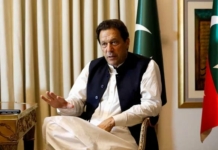The Capital Calling, an Islamabad-based think tank, has sounded the alarm regarding the vulnerabilities in Pakistan’s tax system, which have resulted in a staggering loss of Rs567 billion, benefiting two major players in the cigarette industry.
Amidst one of the worst economic crises in Pakistan’s history, recent findings from a study conducted by SDPI reveal the significant loss of national resources to powerful cigarette industry giants.
The study highlights a Rs567 billion loss incurred by these tobacco giants since 2017. Despite the Federal Board of Revenue (FBR) halving the tax on cigarettes in the same year, revenue collection targets have consistently been missed.
The introduction of a “third tier” in the excise duty structure in 2017, pushed by multinational cigarette companies, has exacerbated the situation, resulting in a substantial loss of revenue over the past seven years.
The study underscores the tobacco industry’s influence over policymakers, who prioritize revenue collection over public health concerns. Urgent attention and comprehensive reforms are needed to address these challenges and curb the influence of these powerful industry players.
Furthermore, the study emphasizes the successful implementation of high taxes on cigarettes in high- and middle-income countries to reduce consumption and boost government revenues. However, Pakistan lacks a clear strategy for taxing the sector as a public health tool.
The World Health Organization (WHO) stresses the importance of protecting tobacco tax policies from the vested interests of cigarette companies for effective public health initiatives. Unfortunately, this has not been the case in Pakistan, as revealed by the study.







